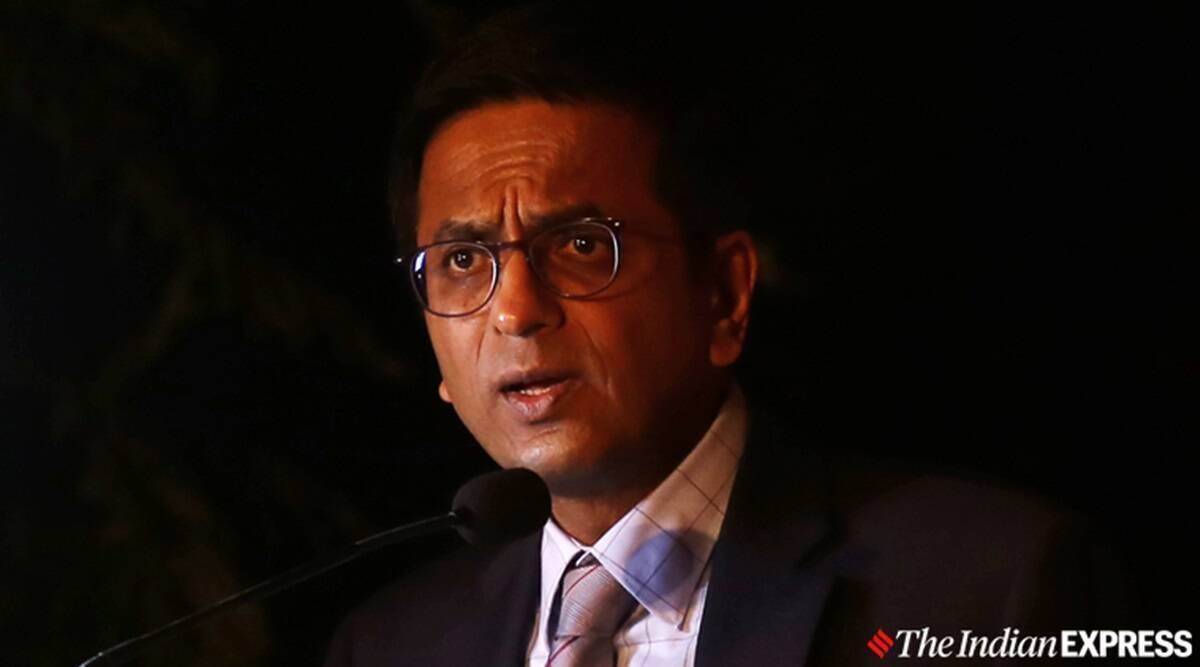 Chief Justice of India D Y Chandrachud. (File Photo)
Chief Justice of India D Y Chandrachud. (File Photo)Chief Justice of India D Y Chandrachud Saturday said all decision-makers, not just judges, have the responsibility to ensure that law remains an instrument of justice and does not become an instrument of oppression.
He also underlined the need for judges to re-engineer themselves in the social media era.
“Sometimes law and justice do not necessarily follow the same linear trajectory. The law can be an instrument of justice but the law can be an instrument of oppression as well…. So how do we ensure, as citizens, that the law becomes an instrument of justice and does not become an instrument of oppression? I think the key is the way in which all decision-makers, not just judges, handle the law,” the CJI said at the Hindustan Times Leadership Summit here.
He pointed out that what sustains judicial institutions in the long run is the sense of compassion, a sense of empathy and the ability to answer cries of citizens.
“When you have the ability to hear unheard voices in your system, (see) unseen faces in the system and then see where the balance between the law and justice lies, then you can truly perform your mission as a judge,” he said.
The CJI also referred to how social media has changed lives and how it’s reflecting on courts.
“With real-time reporting in the courtrooms today, by the second every little word the judge says is put out on Twitter, or Telegram, or Instagram and you are constantly evaluated as a judge by what you say,” he said.
“Now if you have judges who decide to keep quiet and not say things when arguments are going on, that would pose a grave danger to the process of judicial decision-making, because the ability of a lawyer to meet an argument, to answer concerns of the judge, and to explore the mind of the judge or the line of reasoning of a judge is critical to the work which we do in courts.”
Pointing out that the social media era is here to stay, he said the way forward is for judges to refashion and re-engineer themselves. “Now social media has challenged our assumption. What do we do? We live in the era of the Internet, we live in an era of social media. It’s here to stay. So I do believe we need to fashion, re-engineer ourselves as judges. We need to refashion ourselves, find new solutions, reframe ourselves, recoup ourselves, rethink our role, in trying to understand how we meet the challenges of the age in which we live”, he said.
Touching on various reasons for the backlog of cases, the CJI said one of the challenges that courts face is “the challenge of expectations…. Almost every case comes into the lap, every social issue, every legal issue and I dare say, a large number of political issues, fall within the adjudicatory jurisdiction of the Supreme Court”
The CJI said that the reasons for this “are numerous”, one of them being that the government is the largest litigant, which in turn is due to the “simple reason that we have over the last 70 years built a culture of indecision at the lowest levels of government”.
Consequently, “there is also a culture of distrust, and that culture of distrust leads many of our top decision-makers to be careful about taking decisions having a bearing on very high stakes”, he pointed out.
“Now all those cases are therefore deferred to the court; we would rather have the courts decide than us taking a decision. That’s one of the reasons why the courts have a large backlog of cases within the fold of cases that we decide,” he said.
The CJI said that there is also the “culture of faith (of people) that there is something which will happen in their favour in the court”.
Chandrachud said that “very often, the court is criticised that you have trenched upon an area of policy whereas your function as judges is only to decide upon legality”.
“While there is no doubt about that in a democratic form of government, particularly in a country like ours, we have a constitutional democracy, policy-making is entrusted to the executive arm of the government, because the executive is responsible to Parliament, and therefore it is their duty to lay down policy, it is their duty to enact laws, but equally our Constitution has a structural design where the power to interpret laws, the power to strike down a law which is not consistent with constitutional mandate, is entrusted to the judiciary and the judiciary alone,” he pointed out.